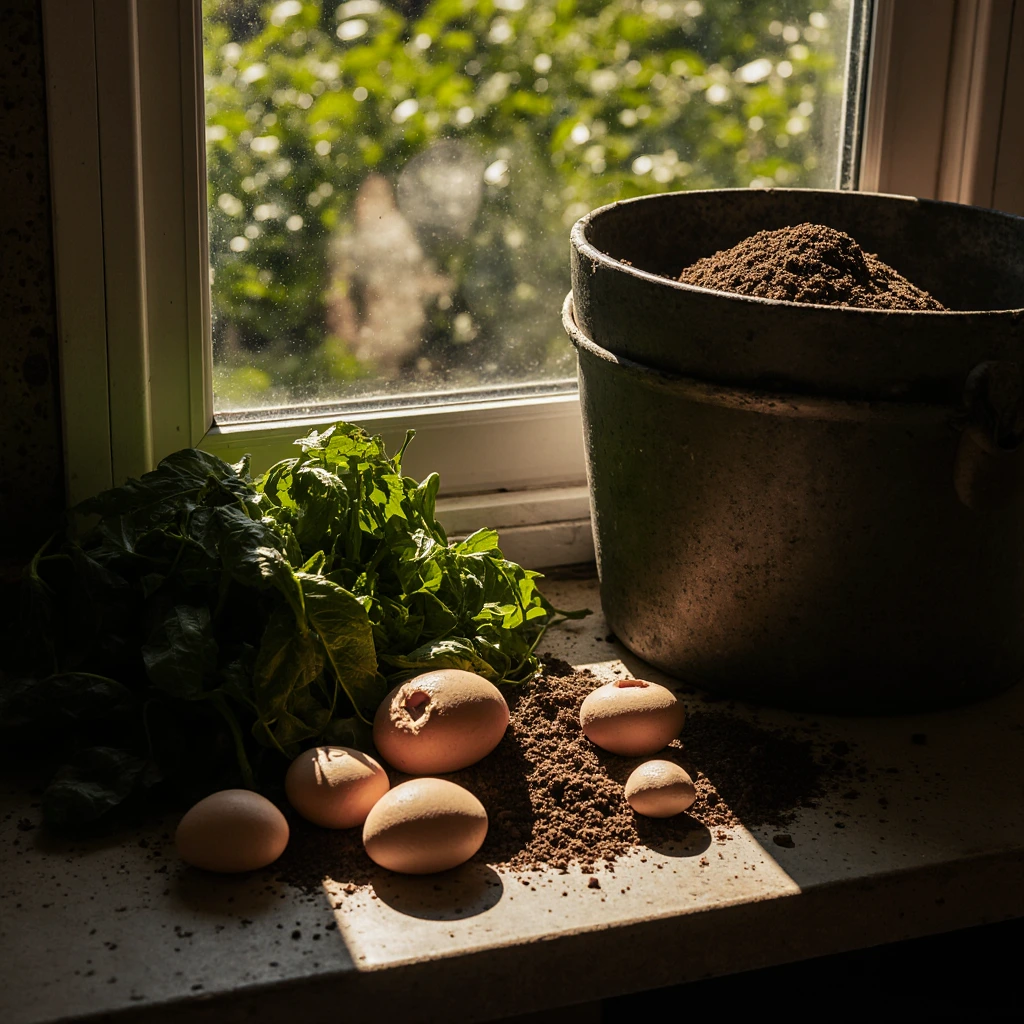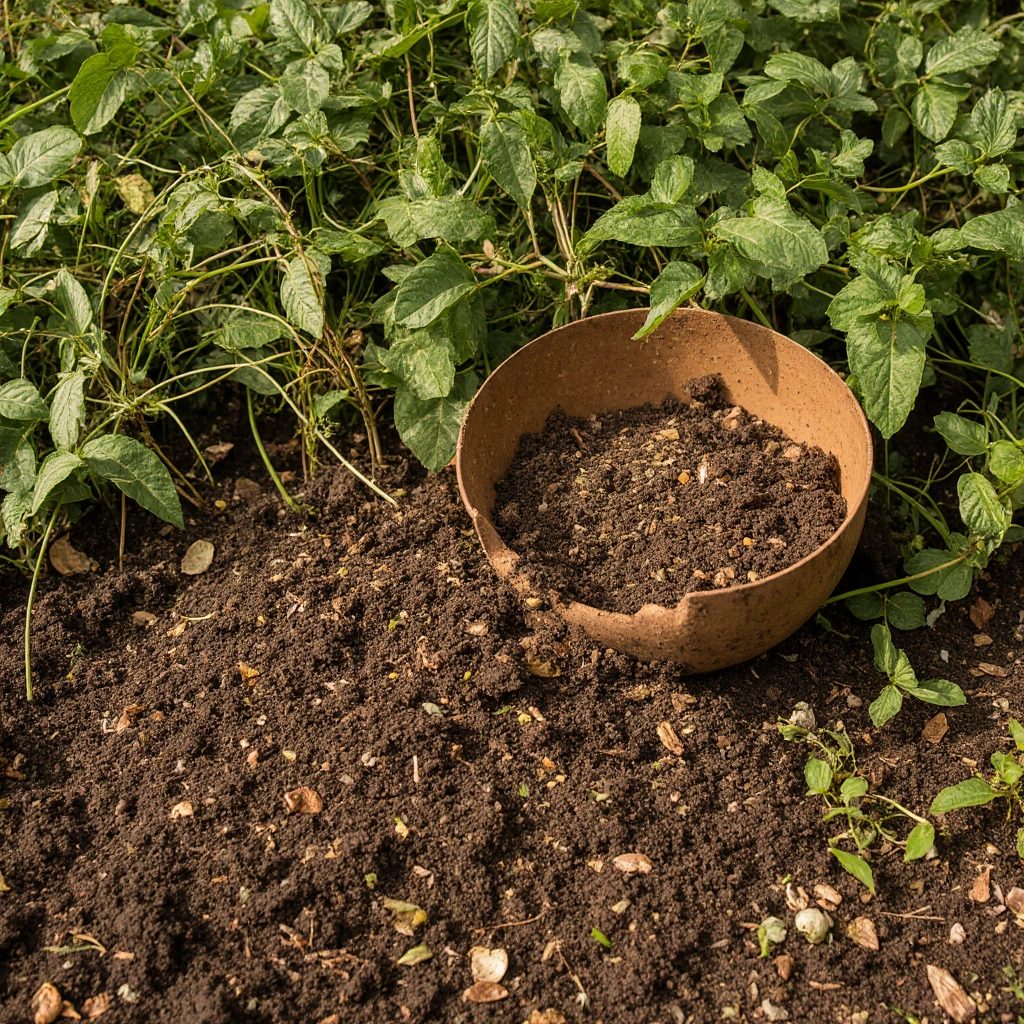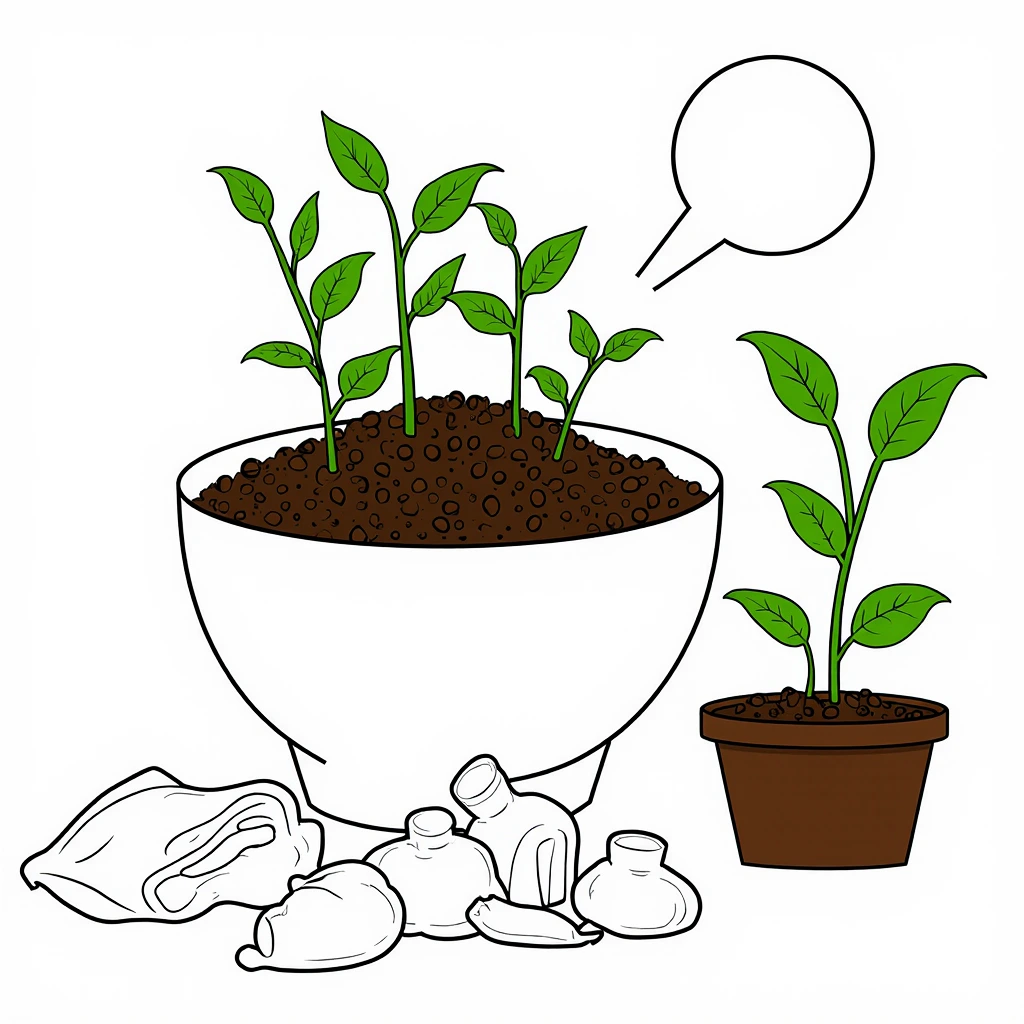Composting at Home – Turning Kitchen Waste into Garden Gold
Composting is one of the most powerful yet overlooked habits in sustainable living. Every banana peel, coffee ground, or vegetable scrap that we throw away can be transformed into something truly valuable — a nutrient-rich material that improves soil, boosts plant growth, and cuts down waste. Whether you have a big backyard or just a small balcony, you can start composting at home easily and help the planet thrive in the process.
![]()
1. What Is Composting?
Composting is a natural biological process in which organic materials decompose through the action of microorganisms like bacteria and fungi. These helpful microbes break down organic waste such as kitchen scraps, garden trimmings, and leaves into a dark, crumbly material called compost or humus. This “black gold” is packed with essential nutrients like nitrogen, phosphorus, and potassium that plants need to grow strong and healthy.
When you compost, you’re essentially mimicking what happens in nature. In forests, fallen leaves and dead plants slowly decompose, enriching the soil with nutrients for new life. Composting simply speeds up this process in a controlled, efficient way — right in your home or garden.
2. Why You Should Compost
Composting offers a wide range of benefits for both the environment and your personal well-being. Here are some of the most compelling reasons to start today:
- Reduce household waste: Up to 40% of typical household waste is organic matter that could be composted instead of sent to landfills.
- Cut down greenhouse gas emissions: Food waste that decomposes in landfills produces methane — a potent greenhouse gas. Composting prevents this.
- Improve soil structure: Compost increases soil’s ability to retain water and nutrients, leading to healthier plants and reduced watering needs.
- Save money: Homemade compost replaces expensive store-bought fertilizers.
- Promote biodiversity: Composting supports a rich ecosystem of beneficial bacteria, fungi, and insects in your soil.

3. What You Can and Cannot Compost
One of the most common beginner mistakes is composting the wrong materials. To make high-quality compost, you need a good balance of “greens” (nitrogen-rich materials) and “browns” (carbon-rich materials).
✅ What You Can Compost:
- Fruit and vegetable scraps
- Coffee grounds and tea leaves
- Crushed eggshells
- Grass clippings and garden trimmings
- Dried leaves and small branches
- Paper towels, cardboard, and newspaper (shredded)
❌ What You Should Avoid:
- Meat, bones, or dairy products (attract pests and cause odor)
- Oily or greasy food waste
- Diseased plants
- Pet waste
- Plastic, glass, or metal

4. How to Start Composting at Home
Starting a compost system is easy — it just takes the right setup and consistency. Here’s a simple guide to get you started:
- Choose your compost bin: You can buy a ready-made compost bin or make your own from a plastic container, wooden box, or metal drum. Drill small holes for airflow and drainage.
- Pick a location: Place the bin in a well-ventilated area that’s easy to access but protected from heavy rain or direct sunlight. A shaded balcony or backyard corner works well.
- Add your materials: Start by layering browns (dry leaves, cardboard) and greens (fruit peels, coffee grounds). Maintain a ratio of about 3:1 (browns to greens).
- Maintain moisture: The compost should feel like a damp sponge — not too dry or soaking wet. If it’s too wet, add more dry leaves or shredded paper.
- Turn regularly: Every 1–2 weeks, mix or turn the compost with a stick or shovel. This allows oxygen to reach microbes and speeds up decomposition.
5. How Long Does Composting Take?
The time it takes depends on factors like temperature, moisture, and materials. In warm, humid climates, compost can be ready in 2–3 months. In cooler conditions, it might take 4–6 months. You’ll know it’s done when the compost is dark, crumbly, and smells like rich earth — not rotting food.
6. Common Composting Problems and Fixes
- Bad odor? Too much green waste or not enough air. Add more browns and turn the pile to aerate.
- Too dry? Sprinkle some water or add more green waste like fruit scraps.
- Too wet or slimy? Add dry materials (leaves, paper) and mix thoroughly.
- Attracting flies or rodents? Avoid meat and oily food; keep the bin closed properly.

7. Using Your Finished Compost
Once your compost is ready, you can use it in many ways:
- Garden beds: Mix compost with topsoil for nutrient enrichment.
- Potted plants: Blend one part compost with two parts potting mix to boost growth.
- Mulching: Spread a thin layer over soil to retain moisture and suppress weeds.
- Seed starting: Sift fine compost for seedlings — it provides gentle, balanced nutrition.
8. Composting in Small Spaces or Apartments
Even without a backyard, you can still compost indoors. Compact compost bins, worm composting (vermicomposting), or electric composters are great solutions. A worm bin, for example, uses red worms to break down food waste efficiently, producing rich compost and “worm tea” — a powerful liquid fertilizer. Place it under the sink or on your balcony and you’ll barely notice it’s there.
9. The Environmental Impact of Home Composting
Home composting is one of the most accessible ways to fight climate change. Food waste accounts for nearly 10% of global greenhouse gas emissions. By composting, you help reduce landfill waste and methane output while returning nutrients to the earth. If more households adopted composting, it could significantly cut down municipal waste collection and landfill expansion.
10. Final Thoughts
Composting at home is simple, rewarding, and impactful. With just a little time and attention, you can transform your kitchen waste into a sustainable resource that nourishes the planet and your garden. It’s a small daily action that adds up to big environmental change. So, the next time you peel a banana or make coffee, think twice before tossing it away — that waste could be the start of your garden’s next growth story.
Start small, stay consistent, and watch your waste turn into garden gold.